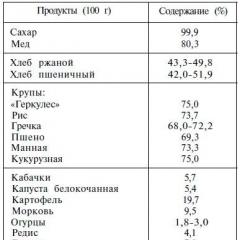An employment contract with a non-founder director. Employment contract with the general director of llc
LABOR AGREEMENT No. _______ TD
_________________ "___" ________ 201__
Limited Liability Company "" (LLC "")hereinafter referred to as "Society",represented by the sole founder ________________________________________, acting on the basis of the Charter , on the one hand, and __________________________________________________________, passport: _________ No. ________________________, issued ______________________________________, unit code __________________, hereinafter referred to as "Worker", on the other hand, have entered into this Agreement as follows:
1. SUBJECT OF THE LABOR AGREEMENT
1.1. The employee was elected to the post of General Director of the Limited Liability Company “” (LLC “”) on the basis of the Decision of the sole participant on the creation of the Limited Liability Company “” dated 00.00.0000 No. ______.
1.2. Society is the main place of work of the Employee. An employee may work concurrently with another employer only with the permission of the sole Member of the Company.
1.3. The start date is “___” __________ 20____
1.4. The place of work of the Employee is LLC “”, located at the address: Russia, _________________________________________________________.
1.5. This Labor Contract shall enter into force upon signature by both Parties.
1.6. An employment contract is concluded for a specified period of 5 (five) years in accordance with the second part of Article 59 of the Labor Code of the Russian Federation and paragraph ___________ of the Charter of the Company.
2. OBLIGATIONS OF THE PARTIES
2.1. Society instructs, and the Employee takes over the management of the current activities of the Company for the duration of this Agreement.
2.2. The employee independently resolves all issues of the Company’s activities related to his competence by this contract, the Charter of the Company, job description, decisions of the founder, as well as the current legislation of the Russian Federation.
2.3. The Company has the right - to amend and terminate the employment contract with the Employee in the manner and on the conditions established by the Labor Code of the Russian Federation and other regulatory legal acts containing the norms of labor law.
2.4. The employee must perform the following duties:
To manage, in accordance with the current legislation, the production, business and financial and economic activities of the enterprise, bearing full responsibility for the consequences of decisions made, the safety and efficient use of the property of the enterprise, as well as the financial and economic results of its activities;
Organize the work and effective interaction of all structural divisions;
Ensure that the Company fulfills all its obligations to the federal, regional and local budgets, state extra-budgetary social funds, suppliers, customers and creditors, including bank institutions, as well as business and labor agreements (contracts) and business plans;
Take measures to provide the Company with qualified personnel, the rational use and development of their professional knowledge and experience, the creation of safe and favorable working conditions for life and health, and compliance with the requirements of environmental legislation;
To solve issues relating to the financial, economic, industrial and economic activities of the Company, within the limits of the rights granted to it by law, to entrust certain lines of business to other officials - deputy directors, specialists of the Company;
Ensure compliance with the law in the activities of the Company and the implementation of its economic and economic relations, the use of legal means for financial management and functioning in market conditions, strengthening contractual and financial discipline, regulating social and labor relations, ensuring the investment attractiveness of the Company in order to maintain and expand the scale of entrepreneurial activity . To take all necessary actions to protect the property interests of the Company in court, arbitration, and government bodies.
2.5. The employee has the right:
Acts on behalf of the Company without a power of attorney, including representing its interests and making transactions;
Dispose of property and funds of the Company to the extent established by the Charter of the Company and applicable law;
To approve the rules, procedures and other internal documents of the Company, determine the organizational structure of the Company, with the exception of documents approved by the General Meeting of the founder;
Issue orders and give instructions binding for all employees of the Company;
Approve the staffing of the Company, conclude and terminate employment contracts with employees;
Hire and dismiss employees, including appointing and dismissing their deputies, chief accountant, specialists, employees and other employees;
Encourage employees of the Company, as well as impose penalties on them, require employees to comply with internal labor regulations, other local regulations in force in the Company, instructions, as well as the terms of the employment contract;
To determine for the employees of the Company the composition and volume of information constituting the official and commercial secret of the Company;
Open bank accounts, foreign exchange and other accounts of the Company, conclude agreements and make other transactions;
Approve contractual prices and tariffs for services;
Keep accounting personally and provide reporting;
Sign outgoing and also payment documents;
Issue power of attorney;
To exercise other powers related to the implementation of its competencies.
2.5. The employee must:
Comply with the terms of this agreement, the provisions of the Articles of Association of the Company, as well as the conditions of other regulatory legal acts containing labor law standards;
Ensure compliance with the indicators of the Company's economic activity;
To carry out daily management of the Company;
To control the work and ensure effective interaction of specialists (departments and other services) of the Company;
Carry out property insurance;
Take measures to eliminate the causes and conditions that may lead to a conflict situation in the team;
Organize compliance with labor discipline, labor protection rules;
Correctly organize the work of workers;
To create conditions for the growth of labor productivity;
To improve the working and living conditions of workers;
Provide reports on their activities at the request of the founder;
To observe the commercial secret of the Company and take measures to ensure its safety, in connection with which it is obliged not to give interviews, not to conduct meetings and negotiations related to the activities of the Organization, without the permission of its founder;
Not to disclose information that has become known to him by occupation relating to the personal data of the Employees and Of the Societyin accordance with current Society Regulation on the protection of personal data of employees;
Ensure timely payment of taxes in the manner and amount determined by law;
Perform other duties related to the implementation of his competence.
2.7. An employee is obliged to comply with the Organization’s Internal Labor Rules, production and financial discipline, and to conscientiously treat his duties specified in clause 2.3. of this employment contract.
2.8. Society undertakes:
2.8.1. Provide the Employee with work in accordance with the terms of this employment contract. The Company has the right to require the Employee to fulfill obligations (work) not stipulated by this labor agreement only in cases provided for by federal laws and other regulatory legal acts.
2.8.2. Ensure safe working conditions in accordance with the requirements of labor protection rules and federal laws and other regulatory legal acts.
2.8.3. Pay bonuses, remuneration in the manner and on the terms established by the Company.
2.8.4. Carry out social insurance of the Worker against industrial accidents and occupational diseases. Carry out compulsory social insurance for the Employee in the manner prescribed by federal laws.
2.8.5. To pay, in case of industrial need, in order to improve the qualifications of the employee, his training.
2.8.6. To familiarize the Employee with labor protection requirements and the Internal Labor Regulations and other local regulations in force in the Company.
2.8.7. Compensate for the harm caused to the Employee in connection with the performance of his labor duties, as well as compensate moral damage in the manner and on the conditions established by the Labor Code of the Russian Federation, federal laws and other regulatory legal acts.
2.8.8. Compensate for mobile communication services within the amount of 7 (seven) thousand rubles per month, if this service is framed by an act of reception and transfer of a SIM card, an order for core business, and the position is provided for by a list of posts that have the right to use cellular communications.
2.8.9. Observe the general requirements when processing personal data of an employee and the guarantees for their protection established by the Labor Code of the Russian Federation and applicable law.
2.8.10. Perform other duties stipulated by the current labor legislation of the Russian Federation.
3. SALARY
3.1. For the work performed, the Company establishes an official salary in the amount of ___________________ (_______________________________) rubles per month, and the district coefficient of wages ___% (__________).
3.2. By orders of the Company, the Employee may be established allowances, supplements to the official salary, as a reward, one-time bonuses, which are established by the Regulation on Remuneration, are paid.
3.3. The sizes and forms of remuneration can be revised, which is formalized by an appropriate order and the execution of an additional agreement to the employment contract.
3.4. Payment of wages and other monetary rewards is made after deduction of taxes and mandatory deductions to state extra-budgetary funds in cases and amounts stipulated by applicable law.
3.5. Wages shall be paid to the Employee at least every half month. Salaries are issued through the cashier or transferred to a bank card, at the request of the employee. Each employee is issued a calculation sheet. Advance payment of wages for the first half of the month is paid on the 20th of the current month. The final payroll calculation is made on the 10th day of the month following the reporting period.
3.6. The Company is not responsible for the incorrect calculation of the amounts of mandatory deductions from wages, due to the fact that the Employee did not timely provide documents confirming the availability of benefits or other obligations affecting the size of such deductions.
4. WORKING HOURS
4.1. The employee is set a five-day work week lasting 40 (forty) hours. Weekends are Saturday and Sunday.
Start of work - 09 hours. 00 minutes
End of work - 18 hours. 00 minutes
A break for rest and food - 1 hour. 00 min., From 13 hours 00 min. up to 14 hours 00 min.
4.2. The work of the employee in the position specified in clause 1.1 of the contract is carried out in accordance with the production calendar approved by the Government of the Russian Federation for the current calendar year.
4.3. Holidays defined by the legislation of Russia as non-working days are also non-working days for the Company.
4.4. In case of production need, the Company may transfer the Employee to flexible working hours, in accordance with Art. 102 of the Labor Code of the Russian Federation, on irregular working hours in accordance with Art. 101 of the Labor Code of the Russian Federation, to engage in overtime work, in accordance with Art. 99 of the Labor Code of the Russian Federation or to work days off and public holidays in accordance with Art. 113 of the Labor Code of the Russian Federation.
5. VACATION
5.1. An employee is granted annually paid leave of 28 calendar days.
5.1.1. In cases provided for by labor legislation, at the request of the Employee, leave may be granted until the expiration of six months of continuous work in the Company.
5.1.2. Holidays for the second and subsequent years of work are provided in accordance with the Vacation Schedule approved by the Company.
5.1.3. The annual paid leave by agreement of the parties may be divided into two parts: of a duration of 14 (Fourteen) calendar days, in exceptional cases it is possible to provide annual paid leave of 7 (Seven) calendar days, while one of the parts of the annual paid leave must remain at least 14 (Fourteen) calendar days.
5.2. Replacement of leave with monetary compensation is not allowed, except in cases of dismissal of an employee who has not used the leave.
5.3. The employee may be granted other holidays provided by applicable law.
5.4. For family reasons and other good reasons, the Employee can be granted short-term leave at his request without pay.
6. PRIVACY
6.1. The employee is obliged to keep technology, know-how, information on the external and internal aspects of the state and activities of the Company, the names and names of partners and customers of the Company, both existing and potential, as well as other information of the Company and the clients of the latter in strict secrecy ( further "Information") that were received by the Employee directly or indirectly during the term of his work.
6.2. The employee must not disclose the Information during the term of the Agreement and within 1 year after its termination;
6.3. The employee is forbidden to make copies, transfer contents to third parties and take out any documents, objects, files and papers belonging to the Company or to third parties who have entrusted them to the Company without special permission;
6.4. All the results of the Worker's work obtained by him in the course of fulfilling his official duties or in connection with them become the exclusive property of the Company.
7. AVOIDING CONFLICTS OF INTEREST
7.1. During the term of the Agreement, including the duration of the notice of termination of the Agreement, in accordance with clause 9.1.2., The Employee agrees not to enter into independent labor or civil law relations with organizations and with third parties doing business that is similar to the Company, regardless of whether such relations will be formalized legally.
8. RESPONSIBILITY OF THE PARTIES
8.1. The employee bears the responsibility stipulated by the legislation of the Russian Federation:
8.1.1. For poor-quality and untimely performance of duties and non-fulfillment of the rights provided for by the Job Description, this Agreement;
8.1.2. For direct actual damage caused to the Company, bears full material liability, regardless of whether this provision is enshrined in the employment contract;
8.1.3. For compensation for losses caused to the Company by its guilty actions, while the calculation of losses is carried out in accordance with the standards provided for by civil law. Clause 2 of Article 15 of the Civil Code - losses are understood to mean expenses that a person whose right has been violated, has made or will have to make to restore the violated right, loss or damage to his property (real damage), as well as lost income that this person would receive under normal conditions of civil circulation, if his right had not been violated (loss of profit).
If the person who violated the right received as a result of this income, the person whose right is violated has the right to demand compensation, along with other losses of lost profits, in an amount not less than such income; Clause 2, Article 44 of the Federal Law of the Russian Federation No. 14-FZ of 02/08/1998 as amended by from 12/29/2012;
8.1.4. For making an unjustified decision that entailed a violation of the safety of property, its unlawful use or other damage to the property of the Company;
8.1.5. For the disclosure of secrets protected by law (state, commercial, official and other) that became known in connection with the performance of labor duties, including the disclosure of personal data of employees;
8.1.6. For illegal deprivation of the Company's employees of the opportunity to work;
8.1.7. For the delay in the payment of wages and other payments due to employees of the Company, regardless of the fault of the employer;
8.1.8. For non-compliance with the Job descriptions by subordinate employees, for their non-compliance with the Internal Labor Regulations, Safety Rules, Labor Protection, Fire Safety and other internal regulatory documents of the Company.
8.2. The employee bears full financial responsibility both for direct actual damage directly caused to the Company, and for damage incurred by the Company as a result of compensation for damage to other persons.
8.3. Liability is excluded in cases of damage due to:
Force majeure, that is, extraordinary and unavoidable circumstances under the given conditions. Such circumstances do not include, in particular, a violation of obligations on the part of the debtor’s counterparties, the absence of goods necessary for execution on the market, or the absence of the necessary funds from the debtor;
Normal business risk. The normal economic risk may include employee actions that are consistent with modern knowledge and experience, when the goal could not be achieved otherwise, the employee properly fulfilled the duties assigned to him, showed a certain degree of care and discretion, took measures to prevent damage and the object of risk material values \u200b\u200bappeared, but not the life and health of people;
Extreme need or necessary defense. Damage caused in the state of necessary defense - damage caused in protecting the person and rights of the defender or other persons protected by the law of the interests of society or the state from a socially dangerous encroachment, if this encroachment was associated with violence dangerous to the life of the defender or another person, or with the immediate threat of such violence. Damage caused in a state of emergency — damage caused in a state of danger that threatens the causer of harm or other persons, if this danger could not be eliminated under other circumstances by other means;
8.4. The company bears material and other responsibility in accordance with the current legislation in the following cases:
As a result of the illegal deprivation of the Employee the opportunity to work;
Causing to the Employee damage as a result of injury or other damage to health associated with the performance of his labor duties;
As a result of damage to the property of the Worker;
For delayed wages;
In other cases stipulated by the legislation of the Russian Federation.
8.5. In cases provided for by law, the Company is obliged to compensate the Employee for non-pecuniary damage caused by unlawful actions of the Company.
9. TERMINATION OF THE LABOR AGREEMENT
9.1. The basis for termination of this employment contract is:
9.1.1. The expiration of the employment contract (article 79 of the Labor Code of the Russian Federation), with the exception of cases when the employment relationship actually continues and none of the parties demanded their termination;
9.1.2. Termination of the employment contract at the initiative of the Employee, while the Employee is obliged to notify the Company no later than 1 month in advance (Article 80, 280 of the Labor Code of the Russian Federation);
9.1.3. Termination of the employment contract at the initiative of the employer (Article 81 of the Labor Code of the Russian Federation);
9.1.4. Termination of an employment contract on the basis of additional grounds (Article 278 of the Labor Code of the Russian Federation):
In connection with the dismissal of the Employee as the head of the organization - the debtor in accordance with the legislation on insolvency (bankruptcy);
In connection with the adoption by the authorized body of a legal entity, either by the owner of the property of the organization, or by the person (body) authorized by the owner of the decision to terminate the employment contract. The decision to terminate the employment contract on the specified basis in relation to the head of the unitary enterprise is taken by the authorized body of the unitary enterprise by the body in the manner established by the Government of the Russian Federation;
9.1.5. Transfer of an Employee at his request or with his consent to work to another employer or transfer to an elective job (position);
9.1.6. Refusal of the Employee to continue work in connection with a change of ownership of the property of the Company, a change in the jurisdiction (subordination) of the Company or its reorganization (article 75 of the Labor Code of the Russian Federation);
9.1.7. Refusal of the Employee to continue work in connection with a change in the terms of the employment contract specified by the parties (part four of Article 74 of the Labor Code of the Russian Federation);
9.1.8. Refusal of the Employee to transfer to another job, necessary for him in accordance with the medical certificate issued in the manner prescribed by federal laws and other regulatory legal acts of the Russian Federation, or the absence of the employer of the relevant work (part three and four of Article 73 of the Labor Code of the Russian Federation);
9.1.9. Refusal of the Employee to transfer due to the transfer of the employer to another locality (part one of Article 72.1 of the Labor Code of the Russian Federation);
9.1.10. Circumstances beyond the control of the parties (article 83 of the Labor Code of the Russian Federation);
9.1.11. Violation of the rules for concluding an employment contract established by this Code or other federal law, if this violation precludes the possibility of continuing work (article 84 of the Labor Code of the Russian Federation);
9.1.12. Agreement of the parties (Article 78 of the Labor Code of the Russian Federation).
9.2. Other grounds stipulated by labor legislation and other acts containing labor law norms.
9.3. In all cases, the day of dismissal of the Employee is the last day of his work, with the exception of cases when the employee did not actually work, but in accordance with the Labor Code or other federal law, his place of work (position) was retained.
10. WARRANTIES AND COMPENSATIONS
10.1. For the period of validity of this employment contract, the Employee is subject to all guarantees and compensations provided for by the current Labor Code of the Russian Federation and other federal laws.
10.2. In the event of termination of the employment contract with the head of the organization in accordance with paragraph 2 of Article 278 of this Code, in the absence of guilty actions (inaction) of the head, compensation shall be paid to him in the amount determined by the labor contract, but not less than three times the average monthly salary.
10.3. Termination of the employment contract with the head of the organization in connection with the change of ownership of the organization’s property is an independent basis for termination of the employment contract at the initiative of the employer. The right to terminate the employment contract belongs to the new owner of the organization’s property within 3 months from the date of his ownership. On the day of dismissal of the head of the organization, the new owner must pay him compensation in the amount of not less than three average monthly earnings of the employee.
10.4. An employment contract cannot be terminated with an Employee under paragraph 2 of Article 278 of the Labor Code of the Russian Federation during his temporary incapacity for work or vacation, however, the Company is entitled to transfer powers to another employee to the temporary acting director.
11. TYPES AND CONDITIONS OF SOCIAL INSURANCE
11.1. During the term of the employment contract, the employee is subject to compulsory social insurance in case of work injury or occupational disease or disability. The conditions of social insurance directly related to labor activity are determined by federal laws.
12. SPECIAL CONDITIONS
12.1. The terms of this employment contract are confidential and are not subject to disclosure.
12.2. The terms of this employment contract are binding on the parties. All changes and additions to this employment contract are made out in a bilateral written agreement.
12.3. Disputes between the parties arising in the execution of this Agreement are considered in the manner established by the current legislation of the Russian Federation.
12.4. In all other respects, which is not provided for by this Agreement, the parties shall be governed by the current legislation of the Russian Federation and internal regulatory acts of the Company, provided that there are no contradictions to the Labor Code of the Russian Federation or if appropriate amendments to the Labor Code of the Russian Federation have been made.
12.5. This Agreement is made in duplicate, with the first copy registered and stored in the Company, and the second copy issued to the Employee. The receipt by the employee of a copy of the labor contract must be confirmed by the signature of the employee on the copy of the labor contract stored in the Company.
13. ADDRESSES, BANK DETAILS AND SIGNATURES OF THE PARTIES:
Society Worker
LTD "________ _____________________________________________________________
000000, ___________ _____________________________________________________________
st. __________________
000000, _____________ resident (s) at the address .___________________,
a \\ i ___ st. ___________________________________________
TIN 5000000000 KPP 500000000 d ._____________, quarter_____________
r / s ___________________________
Branch of OJSC ____________ Registration address: _________________________________
____________ _________________________________________________
K \\ s 30100000000000000000000 passport ___________________, issued _____________
BIC 000000000 _____________________________________________________________
The hiring of any employee requires an employment contract. This also applies to managers. What does an employment contract concluded with the director of an LLC look like in 2017?
The specifics of labor relations with employees in leadership positions is such that it is necessary to take into account not only the norms of labor law.
Important are the provisions of corporate law. The combination of these norms raises questions to which the legislation does not always give clear answers.
How to arrange an employment relationship with the director of the LLC? What does a sample of such an employment contract look like in 2017?
Important aspects
The procedure for concluding an employment contract with the general director of the LLC and regulating legal relations between the organization and the general director is regulated by the Labor Code, legal acts of the federal, regional and local levels, as well as constituent documents of the legal entity.
It determines such differences between the legal status of the director and the status of other employees, which arises as a result of the specificity of the work of the chief manager.
Therefore, labor legislation provides for certain nuances of the legal regulation of such labor relations.
For example, under a contract with the general director, only a legal entity can act as an employer.
The head of the legal entity is vested with the highest authority regarding the management of this legal entity.
Its main task is to manage the company and its rights are unlimited in the legislatively established limits.
The duties of the general director include compliance with applicable legal standards regarding the organization’s work and reporting to government agencies.
And, nevertheless, from the point of view of labor law, the general director is the same employee as the rest. Along with other employees, he must comply with certain rules.
He also has a specific production function, albeit with very expanded powers.
Similarly, for the CEO is provided for non-performance of official duties. He, like other workers, receives a salary.
Consequently, since there is a fact of a relationship between the CEO and his immediate employer, there are signs of these relations, the conclusion of an employment contract is required.
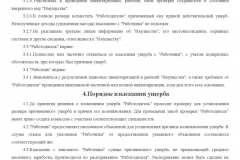
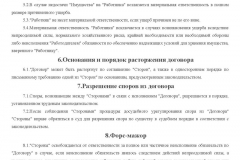
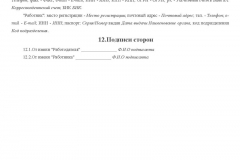
Here the main difficulties arise. How to draw up an employment contract with the CEO, what it needs to indicate, for how long to conclude.
Required Terms
The General Director of the LLC is an individual who manages the company and functions as the sole executive body.
The general director acts on behalf of the company, guided by the approved Charter. He has the right to resolve all issues that are not within the competence of other bodies of society.
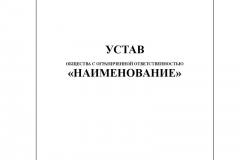
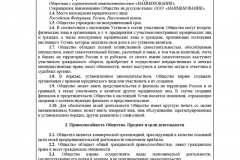
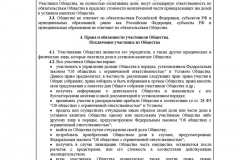
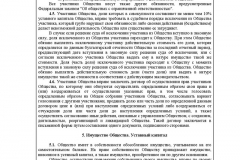
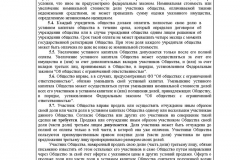
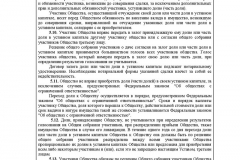
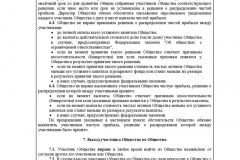
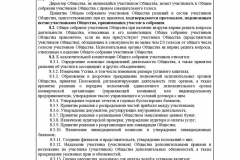

![]()
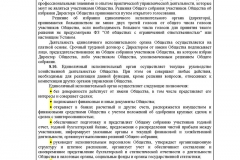
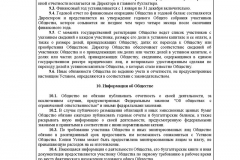
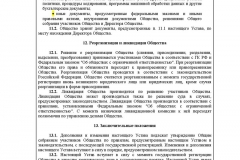
The CEO can be named in different ways - the president, leader, director, the essence of this does not change. The head is the same employee.
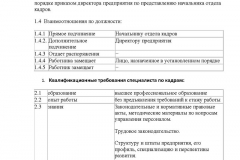
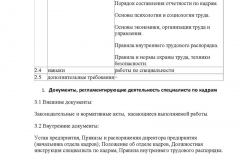

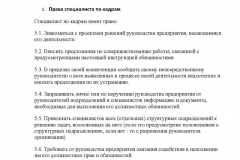

He has certain rights and obligations. And they must be properly secured, that is, through the execution of an employment contract.
An employment contract with the general director of an LLC is an agreement between an individual accepted for a manager and an LLC represented by a meeting of founders.
The founders are persons owning a share of the company's property. The contract includes all mandatory aspects stipulated by labor legislation.
In particular:
- contract time;
- place of work;
- terms of payment;
- social guarantees;
- rights and obligations;
- a responsibility.
But in addition to the mandatory requirements of labor legislation, the provisions are taken into account when concluding an agreement with the general director.
During the formation of a limited liability company, a charter is inevitably created, which spells out the main provisions of the organization. Including secured the procedure for hiring a manager.
Document Purpose
The purpose of the employment contract with the CEO is not only to consolidate his duties.
On the basis of the contract, the head gets the opportunity to individually represent the interests of society without a power of attorney.
He can conclude any transactions and make any decisions regarding the management of the company.
Also, the director can issue LLC to represent the interests, accept and dismiss staff, solve all organizational issues.
That is, the contract becomes a document confirming the existence of certain rights of the general director.
By and large, the appointment of an employment contract with the head is quite standard - the consolidation of rights and obligations.
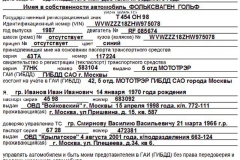

It is much more important to know what threatens the absence of this document. First of all, the role of the director becomes very uncertain.
On the one hand, he was appointed by the founders, but on the other hand, the range of his powers is not quite clear.
Due to this decision, the leader can be challenged, including by competitors.
From an accounting point of view, it becomes impossible to account for salaries and benefits received by the director. There are no social obligations. You cannot account for expenses for tax purposes.
But since the director performs labor duties, he must, like the rest of the employees, receive a salary. And the right to this is given precisely by the labor contract.
Normative base
Labor relations with managers are regulated by Chapter 43 of the Labor Code of the Russian Federation. In addition, provisions are taken into account.
If there is no agreement, then there is no documentary evidence and economic justification of the expenses for the wages of the head.
As a result, the manager’s earnings will be excluded from costs as a tax component.
Tax authorities can apply, confirming that taxable income is not reduced by payments not predetermined by the employment contract.
In addition, an administrative fine may be applied by the Labor Inspectorate.
Lack of an employment agreement is a violation of labor law ().
For officials this is fraught with a fine of one to five thousand rubles, and for legal entities from thirty to fifty thousand rubles.
In some cases, administrative suspension of activity for a period of up to three months is possible. In the event of a repeated violation, a disqualification of one to three years shall follow.
How to make a sample employment contract with the head of the organization
An employment contract with the general director is drawn up according to general rules. That is, it indicates all the mandatory conditions stipulated by labor legislation.
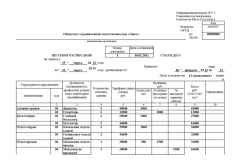

In addition, conditions prescribed by the Charter are additionally prescribed. The labor agreement with the head of the organization is drawn up as follows:
| Document's name | Date and place of compilation |
| FULL NAME. individual | Director General |
| Name of company | And her details |
| Document Information | Confirming manager’s identity and LLC status |
| Information about the representative of the employer | Which directly signs the contract and a reference to the basis giving him such authority |
| A place | Where should work be carried out? |
| Job function and position | Relevant |
| Start Date | — |
| The procedure for remuneration | The salary or tariff rate is displayed, in addition, the relying bonuses, allowances and incentives are indicated |
| Time for work and rest | — |
| Social Security Terms | — |
| Other points | Provided by legislative or local acts |
| Signatures of the parties | — |
Formation order
For registration of an employment contract, the director general does not require an application for employment. His appointment is preceded by an election, appointment or competitive selection process.
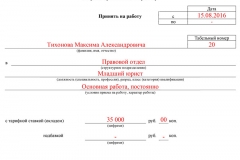
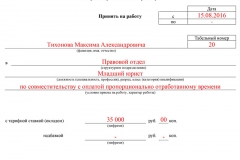
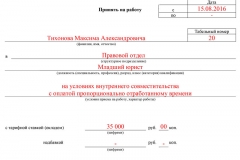
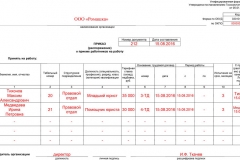
The appointment of a leader begins with the convening of a general meeting of the founders. In the process of discussion, the founders make a decision on the need to appoint (change) the director.
Its approval is carried out by drawing up the minutes of the general meeting. If there is one owner, the decision of the sole founder is drawn up.
An employment contract is signed on the basis of a protocol or decision. Then, an order for hiring according to the approved one is issued and signed by the director himself.
Based on the protocol and the order, an entry is made in the work book. Next, the director takes up his duties and issues an order to take office.
As an example, used in paperwork:
- decision on the appointment of the Director General;
- labor contract with the general director;
- the order of acceptance to work;
- order to take office.
In general, the procedure for applying for the position of Director General is not particularly difficult. However, the type of contract concluded with the manager is important.
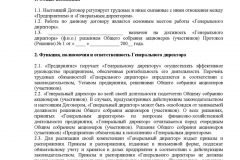
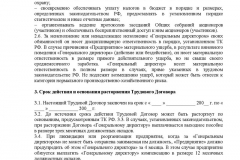
![]()

Fixed-term contract
Thus, if the Charter defines a certain term for the election of a director, then the employer is interested in registration.
But if the director himself does not agree, then you can only conclude an indefinite agreement or cancel the decision to appoint a certain person as general director.
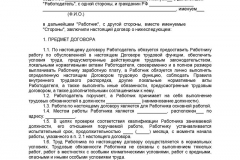


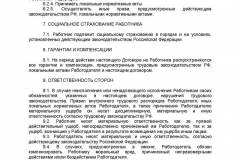

It is important to know that the TC does not provide a general rule on the extension or renewal of a fixed-term contract.
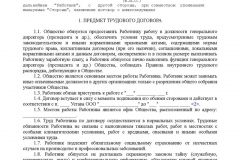
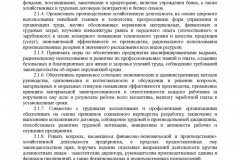



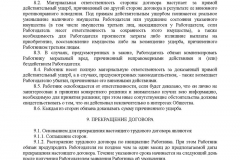
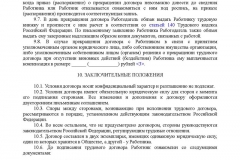

If the parties decide to extend the legal relationship for a new term, then they will need to formally terminate the expiring contract.


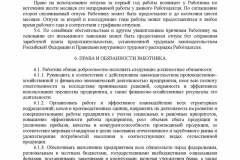
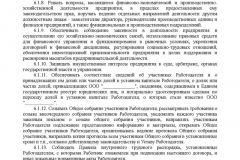
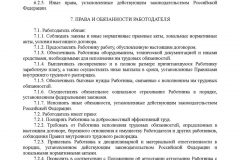
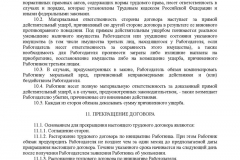
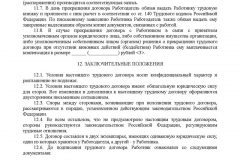

Then a new contract is concluded for the same or a different period. As an example, a fixed-term contract with the general director - with a trial period and without a trial period.
Perpetual
It is possible to accept an employee for the position of General Director of an LLC either through a fixed-term contract or through an unlimited contract.
If the contract indicates only the start date of its validity, but there is no expiration date, then the agreement shall be deemed concluded indefinitely. But a fixed-term contract may also become unlimited.
According to the law, for termination of a fixed-term contract it is required that one of the parties must, three days before the expiration date, must notify the other side of this.

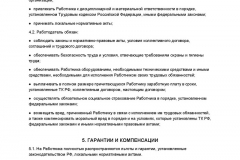
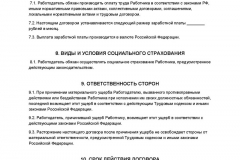

If neither party remembers the expiration of the contract and the employment relationship continued as usual, the contract is considered extended for an indefinite period.
According to article 58 of the Labor Code, such an agreement should be renegotiated. At the same time, you can immediately arrange with the CEO.
For example, when the Charter does not spell out a strict rule regarding the duration of the powers of the appointed leader.
Concurrently
The need for part-time registration may arise when the same person leads several organizations. For example, within the same corporation.
A third-party director may also be employed. However, unlike an ordinary employee, the consent of the main employer is necessary for part-time director.
If the general director improperly performs his duties, the meeting of the founders has the right to dismiss him.
The founders may terminate relations with the director without the presence of guilty acts or other valid reasons.
But in this case, the head at the dismissal is paid compensation in the amount of three average earnings ().
Sample fill
An agreement is filled with the general director of the LLC immediately after approval of his candidacy by the meeting of the founders.
When drafting the contract, the standard form does not apply, the document is prepared in free form. The standard form of the contract is as follows:
- names and addresses of registration of the parties;
- subject of agreement;
- detailed description of responsibilities;
- rights of the parties;
- operating mode;
- responsibility of the parties;
- payment order;
- procedure for termination and extension of the contract;
- settlement of disputes;
- details of the parties and signatures.
The document is supplemented by other conditions, depending on the agreements reached by the parties.
Important! The position of the head in the employment contract should sound exactly as prescribed in the Charter. You can include a condition on the probationary period in the contract.
According to labor law, a test period for managers can be set up to six months. An obligatory clause of the contract with the head becomes the clause on non-disclosure of trade secrets.
Violation of this condition may become the basis for the dismissal, and sometimes the emergence of financial claims.
With CEO
The peculiarity of concluding an agreement with the general director may be that the sole founder of the company becomes the head.
In this case, a controversial situation arises regarding the conclusion of the contract, whether one is needed or not.
At the same time, the opinions of experts differ. What does a sample employment contract with the director of an LLC look like, is he the founder of this company?
Video: employment contract with the director
There is an opinion, confirmed by letters of the Ministry of Finance and the Federal Labor Agency, that an employment contract with a single founder acting as a manager is not required.
The position is based on, which excludes in the regulation of Chapter 43 the heads of organizations that are its sole owners.
Also, as an argument, it is carried out where it is said that an employment contract cannot be concluded by a person who is both an employee and an employer.
Of primary importance is where it is stated that the employer and employee sign the contract. And the owner-manager of the employer does not.
But on the other hand, the absence of a contract does not allow to pay salaries and other payments to the director. In this case, you can use a different interpretation of the legislative norms.
In particular, since the contract is concluded by two parties, then one of them may be the sole founder, but as an individual, and on the other - an organization, that is, a legal entity.
This possibility is justified by the fact that the legal entity has its own legal capacity and can enter into legal relations on its own behalf, and not on behalf of the founders.
However, no direct prohibition on the possibility of drawing up an agreement with the founding director is mentioned anywhere.
In, the determining list of persons to whom the norms of the Labor Code do not apply does not contain an indication of the sole founder.
As for the letters of Rostrud and the Ministry of Finance, they are explanations, and by no means normative acts and have no legal force.
In addition, numerous judicial practice confirms the possibility of concluding an employment agreement with a single founder.
With technical
When executing an employment contract with a technical director, special attention is given to his duties.
These include:
- definition of technical policy;
- determination of the direction of technical development in market conditions;
- organization of the development and implementation of plans for the introduction of new technologies and equipment.
A technical director can only be a person with a higher education, business experience and the necessary knowledge.
When drawing up a contract with the technical director, you need to draw up a job description, a work schedule and other applications that specify the working functions.
With sales manager
A person with professional higher education, economic or engineering-economic, can become a commercial manager.
The duties of the commercial director include:
- management of the financial and economic activities of the organization;
- organization of activities of subordinate departments.
As a rule, it is the commercial director who directs the procurement, sales, logistics and marketing.
He monitors the use and fulfillment of contractual obligations. All of these points should be mentioned in the contract.
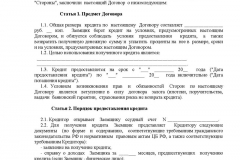
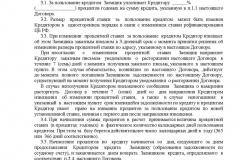

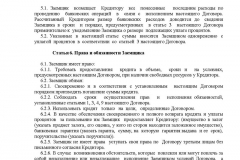
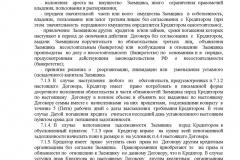


After the conclusion of the labor agreement with the head, the documents are drawn up as with the ordinary employee.
Based on the minutes of the general meeting, an appropriate entry is made in the work book.
Such an agreement, like labor contracts with “ordinary” employees of a company, includes general information:
- Name of Director;
- details of his passport or other identification document;
- date and place of drawing up the contract.
For the LLC as an employer, its name and TIN are also indicated. In addition, you must include information about the person who signs the contract on behalf of the company, and indicate the basis on which he was granted such a right (part 1 of article 57 of the Labor Code of the Russian Federation).
What must be reflected in the employment contract with the director of the LLC
The contract must include the mandatory conditions provided for by the Labor Code of the Russian Federation. First of all, these are the provisions listed in Part 2 of Art. 57 of the Labor Code of the Russian Federation, as well as in other articles of this code. These include the place of work, which is usually the LLC itself, and the labor function that the director will perform. Here you need to write down the specific name of the position (president, director, general director), which is provided in the charter of the LLC, and indicate that the director carries out the management of the LLC, including acting as its sole executive body (part 1 of article 273 of the Labor Code of the Russian Federation).
In addition, depending on the type of contract with the director (urgent or regular), information should be reflected on the date when the director begins to work, as well as other information.
It has been established that the director may claim to conclude either a fixed-term contract or an indefinite contract.
The first can be concluded with the CEO only with his consent. The term for which the contract is drawn up is established on the basis of the instructions of the charter or agreement of the parties (part 2 of article 59, part 1 of article 275 of the Labor Code of the Russian Federation). The fixed-term contract prescribes the date when the director begins to work, as well as the period for which the contract is drawn up. In addition, it is necessary to give the reason why the LLC employer concludes the fixed-term contract: it will be the agreement of the parties.
When concluding an ordinary, “non-urgent” contract, it is enough to write down the date in it, from which the general director will begin to work.
Even in the contract you need to reflect information about the salary of the CEO. The conditions under which the LLC pays for the work of its director are determined by agreement of the parties (part 2 of article 145 of the Labor Code of the Russian Federation).
Important!
Depending on the content, the contract concluded with the director may be a special transaction for the company, large or with an interest (clause 10 of resolution of the plenum of the Supreme Arbitration Court of the Russian Federation dated 05.16.2014 No. 28). The LLC approves such an agreement according to special rules for the execution of the relevant types of transactions (Articles 46, 45 of the Law of 08.02.1998 No. 14-FZ “On LLC”).
What optional information may include an agreement between the LLC and its CEO
Additional conditions can be included in the contract that the LLC concludes with its director. It is important that they do not worsen the position of the general director as an employee of an LLC in comparison with the situation determined by labor legislation (part 4 of article 57 of the Labor Code of the Russian Federation).
For example, the contract may indicate the obligation of the CEO to pass the test within 6 months or less. If the contract does not contain such a condition, then it is considered that the directors were hired without testing (Article 70 of the Labor Code of the Russian Federation).
It is permissible to expand the list of grounds in the agreement on which it can be terminated (paragraph 2 of Part 2 of Article 278 of the Labor Code of the Russian Federation).
You can also prescribe the specific amount of compensation that the director will receive if the contract with him is terminated by decision of the competent authority of the LLC, and the director did not commit unlawful actions or did not act (Article 279 of the Labor Code of the Russian Federation). The legislator stipulated that such compensation cannot be less than 3 times the average monthly earnings of the CEO. But in the contract, you can specify a higher amount of compensation.
If the amount of compensation is not specified in the contract, it will be determined by the court. The court needs to find out all the circumstances. In particular, how long the director worked at the LLC, how much time was left until the contract expired, how much money the director could have received if he had not been fired, and so on (paragraph 12 of resolution of the plenum of the Supreme Court of the Russian Federation dated 02.06.2015 No. 21).
What is the procedure for drawing up a contract for a general director in 2016, and how does it differ from 2015
Contract with the Director of LLC should be in writing. It is necessary to draw up two copies of the document: one will receive the general director as an employee of the LLC, and the second will keep the company. The second copy of the contract, which remains in the LLC, must bear the signature of the director certifying that he received his copy of the contract (part 1 of article 67 of the Labor Code of the Russian Federation).
It is important not to forget to sign the contract: each copy of it must have the signature of the general director and the person who has the authority to endorse the contract on behalf of the company.
Important!
If the powers of the director of the LLC are performed by the sole founder (participant) of the company, then the contract is signed by the same person who acts in different qualities. On the one hand, as a legal representative of an LLC (employer), and on the other, as an employee of an LLC, accepted as a director.
Typically, the contract is certified with the seal of the LLC, although the law does not necessarily require affixing it. If the contract does not have a seal of the LLC seal, this does not affect its validity.
Employment contract with the director of the LLC in 2016, they are drawn up in the same manner as in 2015.
Who signs the employment contract with the CEO of LLC
Vizi contract on behalf of the company can different persons.
Before determining who should sign such an agreement, it is necessary to find out which competent authority is entitled to elect a general director in a given company. In most cases, this is a general meeting of participants (subparagraph 4, paragraph 2, article 33 of the Law of 02.02.1998 No. 14-FZ “On LLC”, hereinafter referred to as the “Law”). However, there may be exceptions. Instead of a meeting, the general director can elect the board of directors of the LLC, if the charter gives this authority such authority.
If the directors are elected by the decision of the meeting, then the chairman of this meeting may endorse the contract with him. In addition, the meeting may vest the right to sign an agreement with the newly elected general director of a particular LLC participant. Then the contract will be endorsed by this authorized participant.
When the CEO elects the board of directors of an LLC, two options are also possible:
- on behalf of the company, the chairman of the council can draw up a contract
- the person authorized by the council to sign the contract by decision.
Such a person may be either a member of the board of directors or a “simple” member of the LLC (para 2 clause 1 of article 40 of the Law).
We give sample agreement with the director of the LLC - it can be downloaded from the link .
with the general director of a limited liability company in the person acting on the basis, hereinafter referred to as " Society”, On the one hand, and c. , passport: series, No., issued, residing at:, hereinafter referred to as " CEO", On the other hand, hereinafter referred to as the" Parties ", have concluded this agreement, hereinafter" Contract", As follows:1. THE SUBJECT OF THE AGREEMENT
1.1. This agreement governs labor and other relations between the Company and the General Director in connection with the fulfillment by the latter of the duties entrusted to him in managing the current activities of the Company. The company is the employer of the Director General.
1.2. elected (appointed) to the post of General Director of the Limited Liability Company by the decision of the general meeting of participants of the Limited Liability Company Minutes of the general meeting of participants of LLC No. dated "" 2017. Based on this decision of the General Meeting of the Company, the Director General issues an order on his assumption of office.
1.3. The General Director manages the current activities of the Company, including the functions of its sole executive body within the competence defined by the current legislation of the Russian Federation, the Charter and internal documents of the Company, as well as this agreement.
1.4. The main goal of the Director General is to provide the most effective management of the Company, ensuring high profitability of the Company, the competitiveness of manufactured goods (services, work, etc.), the stability and stability of the financial and economic situation of the Company, ensuring the rights and legitimate interests of the Company and social employee guarantees. When exercising his rights and fulfilling duties, the General Director must act in the interests of the Company, exercise his rights and fulfill obligations in relation to the Company in good faith and reasonably.
1.5. The rights and obligations of the General Director in the field of labor relations, as well as social guarantees are determined by the Labor Code of the Russian Federation, laws and other regulatory legal acts, constituent documents and internal documents of the Company, this labor contract.
1.6. During the period of activity in the position of the Director General, he is not entitled to occupy, establish or take part personally or through affiliated enterprises of any legal form or through affiliates in any commercial organizations, except for the Companies that are part of the holding company, which includes itself The Company, as well as in accordance with a special decision of the General Meeting of LLC Participants, adopted by a simple majority of the Company participants participating in the voting. The General Director is not entitled to make transactions on his own behalf or in the interests of third parties that are homogeneous with those that constitute the subject of the Company.
1.7. The General Director is not entitled to disclose information that has become known to him in connection with the performance of official duties that constitutes commercial secret and confidential information about the activities of the Company, the disclosure of which may cause damage to the Company.
1.8. The General Director cannot be a member of the bodies performing the functions of supervision and control in the Company, namely:.
1.9. The General Director is subject to all types of compulsory social and medical insurance in the manner and on the conditions established for employees by the legislation of the Russian Federation.
2. OBLIGATIONS OF THE PARTIES
2.1. The duties of the Director General include the exercise of all the powers of the sole executive body of the Company as a commercial organization, the rights and obligations of the Company in relation to the participants of the Company and its employees, state authorities and local self-government, as well as the rights and obligations of the Company related to its production and business activities and management of subsidiaries and affiliates, except for the powers referred by the charter to the competence of the general meeting of participants of the Companies and.
2.2. Duties of the General Director:
- organizes the implementation of decisions of the general meeting of members of the Company;
- provides preparation and submits to the General meeting of participants of the Company an annual report, annual financial statements, including a profit and loss statement, as well as proposals for the distribution of profits;
- informs the general meeting about the current production and economic activities of the Company and financial and economic indicators;
- based on the data of observation, research and analysis of production and commercial processes in the activities of the Company, prepares and implements specific programs for the economic development of the Company;
- exercises strict control over the rational use of material, labor and financial resources;
- represents the interests of the Company in courts of general jurisdiction, magistrates' courts and arbitration courts;
- organizes the production and business activities of the structural divisions of the Company and the effective interaction of subsidiaries;
- controls the work and ensures effective interaction between departments and other structural divisions of the Company;
- develops and implements methods for prompt response to crisis and non-standard situations that may arise in the activities of the Company;
- ensures the fulfillment of the obligations of the Company to counterparties under business contracts;
- provides selection, placement, training, certification, advanced training of the Company's personnel and the rational use of employees' labor;
- ensures compliance with the Company internal documents of the Company, and the principles of corporate culture;
- takes measures to eliminate the causes and conditions that may lead to a conflict situation in the team;
- organizes compliance with labor discipline and safety regulations;
- correctly organizes the work of workers, provides workers with healthy and safe working conditions, creates conditions for the growth of labor productivity;
- improves working conditions of workers;
- organizes accounting, ensures the compilation and timely submission of accounting and statistical reports on the activities of the Company, as well as consolidated reports on the activities of the holding company, respectively, to the tax authorities and state statistics bodies;
- ensures the payment by the Company of taxes and other obligatory payments in the time, manner and amount determined by applicable law;
- performs other duties that are assigned or will be assigned to the General Director by the charter, internal documents of the Company and the current legislation of the Russian Federation.
2.3. The General Director of the Company has the right:
- independently, within its competence, to solve all issues of the production and economic activities of the Company;
- act without a power of attorney on behalf of the Company, including representing its interests in all bodies of state power and local self-government, organizations, enterprises and institutions of any form of ownership, make transactions on behalf of the Company;
- issue power of attorney for the right of representation on behalf of the Company, including power of attorney with the right of submission;
- within its competence, make decisions on the expenditure of the Company’s funds, including funds and reserves created by the Company;
- approve the staffing of the Company, branches and representative offices;
- dispose of any property of the Company, except in cases where the resolution of such issues is within the competence of the general meeting of the Company or;
- approve prices and tariffs for products, works and services;
- open settlement and other accounts in Russian and foreign banks, sign payment documents;
- approve internal documents of the Company within its competence;
- organize the preparation and holding of General Meetings of the Company participants;
- sign payment, financial and other outgoing documents;
- to develop and put forward to the General Meeting of the Company participants reasonable proposals for the development of new business areas, the development of new markets, projects for the global technical and administrative modernization of the Company, as well as relevant data on the analysis of the possibilities of financial support for their development programs;
- to coordinate and organize the interaction of subsidiaries with each other and with the main company;
- approve the organizational structure, staffing, job descriptions of employees of the Company, branches and representative offices of the Company;
- issue orders on the appointment of employees of the Company, on their transfer and dismissal, apply incentive measures and impose disciplinary sanctions;
- in accordance with applicable law, determine information constituting a trade secret and confidential information on the activities of the Company;
- give instructions and orders on all issues of the current activities of the Company, monitor their implementation;
- exercise other rights and powers falling within the competence of the General Director of the Company.
2.4. The company assumes the following obligations:
- comply with the terms of this Agreement, the charter and internal documents of the Company;
- in order to ensure normal working conditions of the General Director, provide him with: a working office, telephone, fax and other operational communications services, an official car, personal security;
- reimburse the Director General for representation expenses in the amount approved by the decision of the General Meeting of the Company;
- pay for the activities of the General Director in the manner, amount and terms determined by this Agreement;
- carry out in respect of the Director-General all types of mandatory social and medical insurance provided for by applicable law and ensure that he is paid the corresponding benefits;
- provide the Director General with social benefits and guarantees provided for the employees of the Company by a collective agreement, the Personnel Development Program and internal documents of the Company;
- to pay the Director General for annual leave vacation pay in the amount of the average monthly salary;
- to ensure, at their own expense, insurance of life, health and property belonging to the Director General by right of ownership (including general joint and common share).
3. WORKING HOURS
3.1. The General Director is set to an irregular working hours mode.
3.2. The time of presence at work, the need for departure on business trips are determined by the Director General independently, based on the production need, the current tasks facing the Company and the need to fulfill the duties assigned to it by this contract.
4. REST TIME
4.1. The General Director determines the break for rest and meals during the working day on his own, at a convenient time for himself.
4.2. The Director General is given two days off per week.
4.3. The Director General shall be granted annual main paid leave of 28 calendar days and additional paid leave for irregular working hours of calendar days.
4.4. The main and additional paid vacations are provided to the Director General during the working year within the terms set by him independently taking into account the current production and economic activities of the Company and fixed in the vacation schedule.
5. PAYMENT FOR ACTIVITY
5.1. Payment for the activities of the Director General consists of the official salary and bonus payments, the amount of which is determined in accordance with paragraph 5.3 of this agreement on the basis of objective indicators of the effectiveness of his work in managing the Company, i.e. the presence of profit, increase in sales, etc.
5.2. The salary of the Director General is set at the rate of rubles per month.
5.3. According to the results of financial and economic activities for the quarter, the General Director receives a bonus in the amount of% of the profits earned by the Company for this reporting quarter.
5.4. Subject to the fulfillment of the business plan of the Company and the duties imposed by this contract, the Director General shall be paid vacation pay in the amount of the average monthly salary for each annual paid vacation. The decision to pay vacation pay is taken by the General Meeting of the Company.
6. DURATION OF THE CONTRACT AND THE PROCEDURE OF ITS TERMINATION
6.1. This agreement comes into force from the moment of its signing by the parties and is valid for years until the relevant decision of the General Meeting of the Company participants on the appointment of the General Director. If, by a decision of the General Meeting of the Company’s participants, for any reason, not a single candidate was nominated within the time and procedure stipulated by the Charter of the Company (all candidates withdrew, there was no quorum of the meeting, etc.), a new General Director was not elected (appointed), the powers of the person acting as the General Director shall be extended until the appointment of his successor, elected at the next General Meeting of the Company. The validity period of this agreement in this case is extended accordingly for the period until the election (appointment) of the new General Director of the Company.
6.2. This agreement may be terminated early:
- at the initiative of the Director General (own desire), if the Director General has submitted a corresponding application for the early termination of this agreement. The application of the General Director must be addressed to the General Meeting of the Company, submitted to the office (or secretary) at the location of the Company no later than one month before the date of termination of the contract. A copy of the letter of resignation should also be sent to the Chairman of the General Meeting of the Company at the address of his place of residence (or location of the participant of the Company, whose leader is the Chairman of the General Meeting of the Company). The General Meeting of the Company participants must, within thirty days from the date of receipt of the Director General's application for termination and termination of the employment contract, decide to resign from the Director General and elect a new Director General;
- in connection with the adoption by the General Meeting of the Company participants of a decision on the early termination of the employment contract;
- in connection with the removal from office of the Director General of the debtor organization in accordance with the legislation on insolvency (bankruptcy);
- for other reasons stipulated by the current labor legislation of the Russian Federation.
6.3. In the event of termination of this employment contract before the expiration of its validity by decision of the General Meeting of the Company participants in the absence of guilty actions (inaction) of the General Director on the day of dismissal, he shall be paid compensation for early termination of his employment contract in the amount of the average monthly earnings of the General Director.
6.4. In case of termination of the employment contract with the General Director in accordance with clause 4 of Article 81 of the Labor Code of the Russian Federation in connection with the change of ownership of the Company, the new owner is obliged to pay the Director General compensation in the amount of average monthly earnings.
6.5. Upon liquidation or reorganization of the Company, when the position held by him cannot be retained by the General Director, the Company shall be obliged to notify him of the forthcoming termination of the contract no later than two months later. In this case, the Company shall pay the Director General a severance pay in the amount and order established by applicable law, as well as compensation for early termination of his employment contract in the amount of average monthly earnings.
7. RESPONSIBILITY OF THE DIRECTOR-GENERAL
7.1. The General Director shall be liable to the Company for losses caused to the Company by his guilty actions (inaction), unless other grounds and amount of liability are established by federal laws.
7.2. The General Director is not liable for damage to the Company in the following cases:
- if the damage arose in connection with actions that may be classified as normal industrial and economic risk;
- if the damage arose as a result of force majeure circumstances or other circumstances of an extraordinary nature that the Director General could neither foresee nor prevent by reasonable measures;
- if the damage is not a direct result of the actions (inaction) of the Director General.
7.3. In determining the grounds and amount of responsibility of the Director General, the usual conditions of business turnover and other circumstances relevant to the case must be taken into account.
7.4. The General Director is liable for damage resulting from decisions made by him that fall outside his competence. The General Director is not exempted from liability if actions entailing responsibility were taken by persons to whom he transferred his rights.
7.5. For violations of labor discipline, the General Director is responsible in accordance with the current labor legislation of the Russian Federation. Penalties shall be imposed on the Director General by decisions of the General Meeting of the Company.
8. PROCEDURE FOR MODIFICATION OF THE TERMS OF THIS AGREEMENT. FINAL PROVISIONS
8.1. The terms of this agreement may be changed by mutual agreement of the General Director of the Company and the General Meeting of the Company.
8.2. All changes and additions to this agreement are valid if they are executed in writing and signed by the General Director and the Chairman of the General Meeting of the Company. If during the term of this contract amendments to the labor legislation are introduced, this contract shall be valid in so far as it does not contradict the law, while an additional agreement to this contract is not concluded.
8.3. In the event of a disagreement in fulfilling the terms of this agreement, they shall be settled through negotiations between the General Director and the General Meeting of the Company. In case of non-settlement of disputes during negotiations, disputes are settled in court in the manner established by the current legislation of the Russian Federation.
8.4. In all other respects, which is not provided for by this agreement, the parties are guided by the current legislation of the Russian Federation.
8.5. This agreement is made in duplicate, having equal legal force. One copy of the contract is kept by the General Director, the other - in the documents of the General Meeting of the Company.
9. LEGAL ADDRESSES AND PAYMENT DETAILS OF THE PARTIES
SocietyYur. address: Mailing address: TIN: KPP: Bank: Account / account: Correspondent / account: BIK:
CEORegistration: Mailing address: Passport series: Number: Issued: By: Phone:
10. SIGNATURES OF THE PARTIES
Society _________________
CEO _________________
